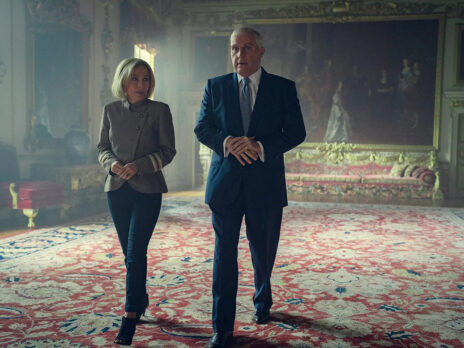
Movies inspired by board games have a chequered history. Clue, based on Cluedo, came with lashings of high camp but flopped nevertheless, while Battleship stank – and sank. Ridley Scott’s Monopoly film, announced in 2008, has still not passed “Go”, and there will have been disappointment for any games fanatics hoping to be catered for by Twister and Downfall.
Perhaps the board-game box-office jinx is what led the makers of a new, Scrabble-oriented comedy-drama to ditch their original title, “Triple Word Score”, in favour of the harder-to-remember Sometimes Always Never. In one of those Scenes Which Explain the Title, we learn that this one refers to the three buttons on a suit, and when (if ever) they should be fastened. Alan (Bill Nighy) is the tailor dispensing the advice, though his abiding passion is Scrabble. He’ll even feign inexperience when playing against strangers, casually suggesting a flutter on the outcome and then fleecing his opponents as though he’s Paul Newman in The Hustler. That could serve as a metaphor for Nighy’s own acting style. There he is, bumbling away hopelessly, usually in a cardigan or cravat, and before you know it he’s pulled off some deft piece of emotional sleight-of-hand.
Alan and his adult son Peter (Sam Riley) are on their way to the morgue where they are to identify a body that may be that of Peter’s brother, Michael, missing since storming out of a Scrabble game at home years earlier. The film, intended in all other respects to be light and wacky, never really recovers from that macabre starting point, or from the scene in which Alan reacts with unseemly briskness to the news that it isn’t Michael who’s been found after all. Another couple, who have come to see if it’s their boy on the slab, sit only metres away.
From here, the picture takes a meandering course. Alan moves in with Peter and his wife Sue (Alice Lowe), and shares a bunk-bed with Jack (Louis Healy), the teenage grandson hooked on computer games. Alan’s sartorial influence makes the lad a hit with Rachel (Ella-Grace Gregoire), the girl at the bus stop. Meanwhile, Alan becomes convinced that an anonymous online Scrabble opponent is in fact Michael. He sets off to find him and Peter follows. En route Peter encounters a waitress with a fondness for the word “soap” and bumps into Alexei Sayle in a boatyard. Well, why not?
Phrase by phrase, Frank Cottrell-Boyce’s screenplay is often delightful. Take Alan’s staccato explanation for why he won’t drive at night: “A-roads in the dark. Oncoming. Full-beam. Nightmarish.” But the script’s ideas don’t quite graduate convincingly into themes. Peter recalls with chagrin how his childhood was littered with cheap versions of popular toys – not Subbuteo but Chad Valley Big League, not Scrabble but a rip-off with flimsy cardboard tiles. The film isn’t even halfway done when Alan spells out the subtext: “You also didn’t have a mother, you had a dad. A poor substitute there.” The moral is: make the best of what you’ve got rather than fretting over what you’re missing. The question is whether Alan will be able to heed his own advice and appreciate the son who’s right in front of him instead of pining endlessly for the one who left.
The director Carl Hunter, formerly the bassist of the Liverpudlian band the Farm, puts rather too much faith in quirkiness to see the film through. Many of the sets are painted in doleful Aki Kaurismäki colours: a dingy hotel bar is decked out in lime with pools of unflattering light, while the magenta cabinets in Peter’s kitchen are offset by walls of turquoise and pistachio. Pointedly artificial driving scenes have a goofy, CBeebies feel, and there’s also an animated boat which sinks at sea. On this evidence, Hunter is auditioning to be the cut-price British Wes Anderson. Even that coveted film-maker, though, is guilty of a certain airlessness, and Hunter should play instead to his own strengths. He coaxes good work from Jenny Agutter as the mother of the other missing son, and from Healy and Gregoire, who are fresh and naturalistic as the teenage lovebirds. If his follow-up doesn’t strain quite so hard for eccentricity, it might not feel like such a trivial pursuit.
Sometimes Always Never (12A)
dir: Carl Hunter
This article appears in the 12 Jun 2019 issue of the New Statesman, The closing of the conservative mind





